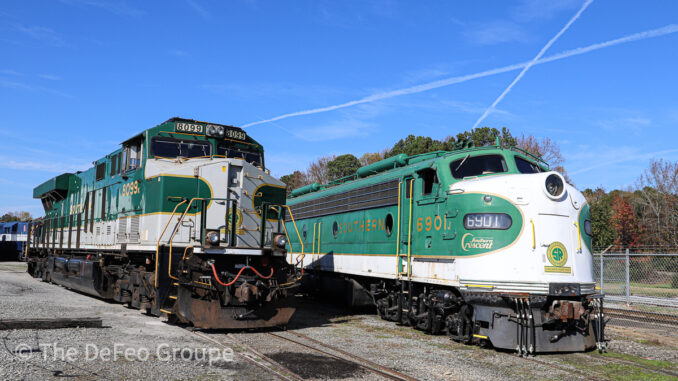
Norfolk Southern Corp. has donated its complete collection of historical documents and archives from predecessor company Norfolk and Western Railway to the Virginia Museum of History & Culture (VMHC).
The collection dates to the 1840s and includes thousands of photographs and glass plate negatives, as well as business records, annual reports, blueprints, plans, bridge drawings, advertisements, portraits, and three-dimensional artifacts from predecessor railroads that together provide a fascinating look into the growth of rail transportation across the eastern United States. The company will also donate $750,000 to support the collection in perpetuity.
“The Commonwealth of Virginia has played a pivotal role in our history, and we are incredibly proud of the contributions it has made to our success,” Norfolk Southern Chairman and CEO Jim Squires said in an announcemenet. “This important piece of history belongs in Virginia, and we’re confident that our archives will be in excellent hands with the Virginia Museum of History & Culture.”
Norfolk and Western originated as a nine-mile single-track line in 1838 to connect Petersburg and City Point (now Hopewell), Virginia. In the years to follow, more than 200 railroad companies were built, merged, reorganized, and consolidated until the company merged with Southern Railway in 1982 to create Norfolk Southern.
The archives represent the history of Norfolk and Western and its predecessor companies.
“Railroads have played a critical role in the expansion of both passenger travel and commercial transportation in the United States,” VMHC President & CEO Jamie Bosket said in an announcement. “With the addition of the Norfolk and Western collection, the VMHC now houses one of the most significant railroad archives in the U.S. We’re thrilled to preserve this iconic history and to make it publicly available to students and teachers, researchers, and railroad enthusiasts.”
The $750,000 grant will allow the VMHC to digitize, catalog and preserve the collection. As part of the donation, Norfolk Southern has created a special fund to allow the VHMC to hire interns from underrepresented communities to support the museum’s work annually for the next five years, beginning this coming fall academic semester.
Among the historic materials in the archives are publicity materials including radio program scripts and posters, timetables, and rolling stock records as well as advertisements, contracts, an extensive collection of photographs, and construction plans for rail stations and yards.

